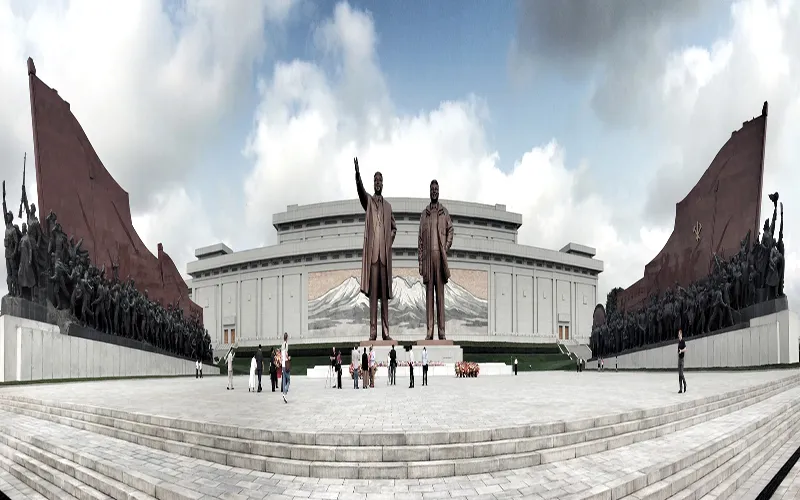-
CENTRES
Progammes & Centres
Location
The deal with Iran should boost efforts to do an Iran with North Korea's nuclear programme as well. This would be more difficult given the authoritarian nature of the regime in North Korea but is still an idea worth pursuing. The major powers should carry forward the momentum and energy to solve other issues in the Middle East.

The framework for a deal between the P5+1 (US, UK, Russia, France, China and Germany) and Iran vis-à-vis Iran nuclear programme could be one of the few truly transformative moments in global politics. It attempts to end to Iran's isolation, paves the path for further rapprochement between it and the US and enables it to integrate with the world. Importantly, the deal represents one of the rare instances of cooperation between the world's major powers to solve a global problem. The last time the major powers in the world came together on an issue in the Middle East, it was to create the state of Israel in 1948. This was undoubtedly a moment when the politics of the Middle East and the world was turned on its head.
Joint diplomatic efforts to solve issues related to Iran's nuclear programme started in 2003 by what was then termed the EU+ 3 countries i.e. UK, France and Germany. Europe was joined in 2006 by the remaining members of the UN Security Council i.e. the US, Russia and China, creating the P5 plus 1 framework for negotiations with Iran. The UNSC over the years has been more or less united on the need to prevent Iran from acquiring nuclear weapons capability. It has passed six resolutions sanctioning Iran for continuing to pursue its nuclear programme.
The fact that the P5 plus 1 remained united during the negotiations is probably what has ensured that a deal has been reached. If there had been any major disagreements among them, Iran would have been able to exploit the fissures to extract concessions.
Each of the P5+1 has something to gain from resolving the Iran issue. For one, for all of them, a resolution to the crisis is a shot in the arm for the global non proliferation regime and ensures that they remain the sole possessors of nuclear weapons in the world. None of the P5 plus 1 wants another nuclear power in the world for various reasons. The West does not want a nuclear Iran because of the threat this would pose to its closest ally, Israel. For Russia especially, its claims to being a great power today rest on its status as a permanent member of the UNSC and its nuclear weapons arsenal. China, for its part, worries about the effect a nuclear Iran would have on the intentions of its neighbours like Japan and Taiwan with which the latter has tensions and which have the capability to go nuclear. All of these countries are aware of the regional and global threat that a nuclear weapons-armed Iran would pose. A nuclear Iran could have a domino effect in the Middle East. Countries like Israel, Saudi Arabia, Turkey and Egypt, with whom Iran competes for regional dominance, would seek to build their own nuclear weapons to counter the perceived threat from a nuclear Iran as well as to prevent Iran from becoming the regional hegemon.
Third, the end of sanctions would mean that it would be easier for them to do business with Iran. After decades of isolation, Iran will need finance and technology to modernise its industries, particularly its oil and gas industry. This is where the major powers sense an opportunity. Moreover, Tehran will also be able to export more oil and gas to the West. This would help the West, particularly Europe, which will have to reduce its dependence on Russian gas due to the sanctions imposed on Russia because of the Ukraine crisis. Fourth, resolving an issue which had so far seemed intractable will significantly add to the political weight and influence and add to the credibility of the UN Security Council in solving difficult problems.
Thus, the Iran deal was reached because of a happy coincidence of interests among the great powers and despite the current stand-off between the West and Russia. However, an unintended consequence of the deal is that it will bring down oil prices further, strengthening the Western sanctions against Russia.
The deal with Iran should boost efforts to do an Iran with North Korea's nuclear programme as well. This would be more difficult given the authoritarian nature of the regime in North Korea but is still an idea worth pursuing. The major powers should carry forward the momentum and energy from resolving the Iran issue into solving other matters in the strife-ridden Middle East like fighting the ISIS, bringing peace to Yemen, etc.
From India's point of view, while this rare instance of cooperation is welcome, it would wish that New Delhi is also made an integral part of such processes in the future, commensurate with its status as a rising power.
(The writer is an Associate Fellow at Observer Research Foundation, Delhi)
The views expressed above belong to the author(s). ORF research and analyses now available on Telegram! Click here to access our curated content — blogs, longforms and interviews.